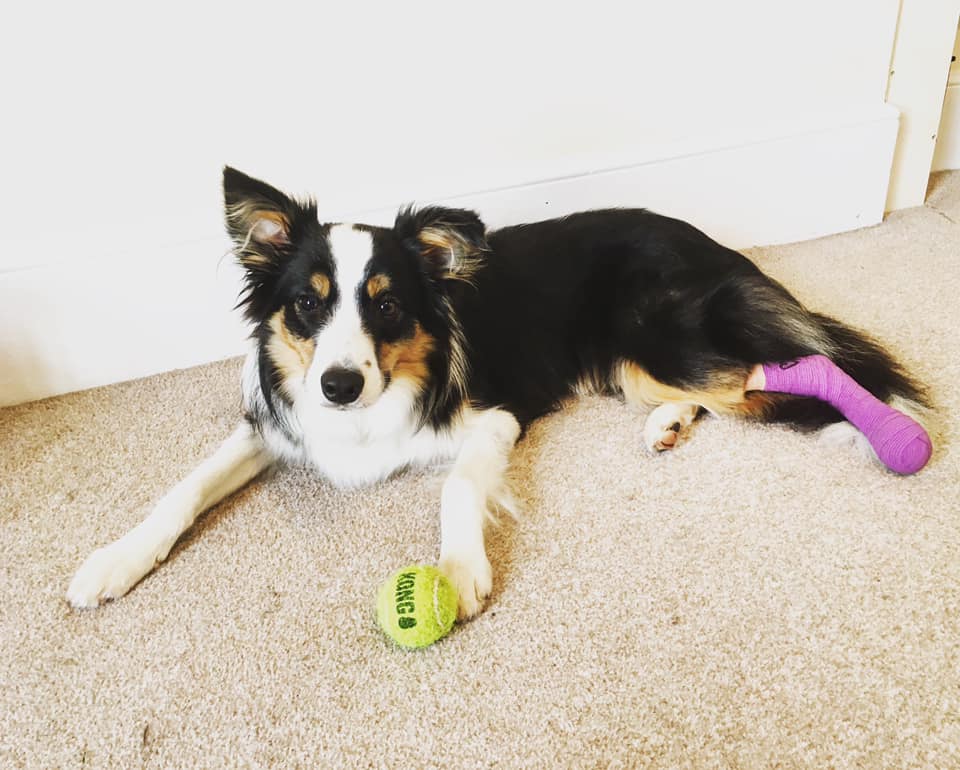Our top tips on how to look after your pet’s bandage correctly, what not to do and what to do if you have any concerns.
Why are bandages placed?
There are four main reasons a bandage may be placed; to cover and protect a wound, to provide support, to prevent further damage to an area or to apply pressure when needed. Pressure bandages are often applied after taking bloods and can in most cases be removed an hour later. The other three bandage types will need replacing at regular intervals depending on the particular case. In some cases this may require sedation.
How can I look after my pet’s bandage?
It is most important that bandages remain dry and clean. They are not waterproof and so if they become wet and/or dirty it can lead to infection of the wound or skin and delay healing. This means no going out in the rain and cats need to be kept indoors with a litter tray. We will supply you with a plastic covering for the end a foot bandage to cover it. This will allow the dog to go outside if the ground is wet. However these plastic coverings should not be left on when indoors as they can lead to excess moisture building up in the bandage due to sweating.
What should not happen when my pet has a bandage?
As above, the bandage should not get wet or dirty; if this happens please book an appointment to have the bandage changed as soon as possible. Please do the same if you also notice any foul smell coming from the bandage.
You should stop your pet from chewing at or disrupting the bandage. Sometimes a light cover such as a sock will be enough but in some cases your pet may require an Elizabethan collar to stop them from getting at their bandage. However if your pet persists upon trying to get to the bandage it is best to arrange a check-up, as sometimes this can mean that there is an issue with the bandage and it may need adjusting.
Bandages sometimes will slip. If this happens the bandage may rub against the skin and cause sores. If you notice that the bandage has slipped then please book an appointment for it to be replaced.
What problems may arise from a bandage and what should I do?
Bandages that slip can rub and cause sores. Any bandages that have slipped should be replaced. Sometimes, often due to the bandage shifting or slipping, they can be too tight. This can lead to problems with the blood circulating correctly; to assess for this check for signs of swelling above or below the bandage. Other signs to check for are signs of redness or chaffing around the bandage that may indicate that it has become loose or slipped. If you are concerned book an appointment for us to check the bandage for you.
Can I place my own pet’s bandage?
It is not advisable to place your own pet’s bandage. If placed incorrectly some bandages can do more harm than good. In an emergency when there is a wound or active bleeding then place a light bandange and get your pet into us as soon as possible. We will then replace the bandage with an appropriate one.
If you have any concerns about your pets bandage, contact us today on 01702 545558.





